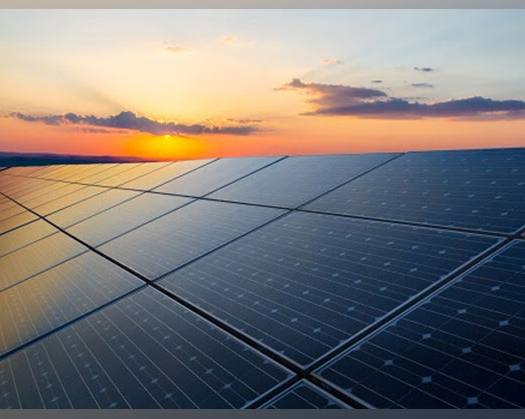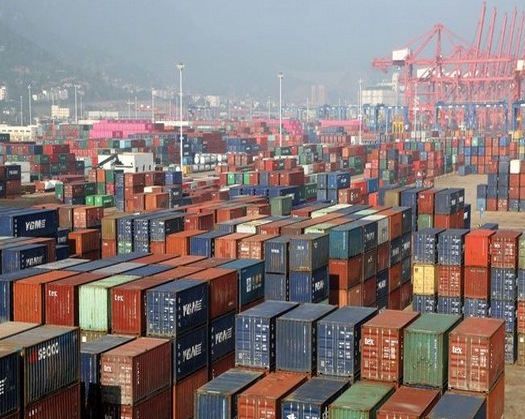New Delhi: As the world's most comprehensive strategy to expand renewable energy is unveiled, with a bold ambition to meet 50 percent of the electricity demand through non-fossil fuel-based energy sources by 2030, India is positioning itself as a global frontrunner in the renewable energy sector.
Experts attribute the rapid growth of the renewable energy sector to three primary factors: the proactive engagement of the Indian government, the expansion of the domestic market, and an increasing awareness of renewable resources, alongside the enhancement of India's research and development capabilities in the green energy domain.
Government-initiated programs such as the National Solar Mission, the National Wind Energy Mission, the Integrated Energy Policy, and the National Green Hydrogen Mission are playing pivotal roles in establishing a robust policy framework for the renewable energy sector. Additionally, permitting a 100 percent Foreign Direct Investment (FDI) under the automatic route for renewable energy projects is a significant step forward.
Policy instruments, including Production-Linked Incentive (PLI) schemes for solar photovoltaic (PV) projects with an investment of US$ 2.9 billion, are guiding the economy towards a more sustainable future. Furthermore, India is excelling in the production of micro-inverters, a sector in which it is performing exceptionally well. The advanced solar inverter market is anticipated to experience a compound annual growth rate (CAGR) of approximately 16 percent from 2022 to 2029, reaching a value of $530 million by 2029.
The wind power sector, which stands as the fourth largest globally, is poised to expand by 60 to 71 GW by the end of this decade. These policies, on one hand, facilitate the necessary supply stream by adequately incentivizing producers, and on the other hand, promote increased demand by fostering environmental awareness among consumers. These policies ensure reduced production costs through effective incentive mechanisms, thereby enabling broader market adoption of renewable energy.
The overarching goal of the current policy framework is to further expand the objectives of the renewable energy market, including reducing carbon intensity, diminishing reliance on fossil fuel imports, and achieving market leadership. India is recognized as a key hub for wind energy manufacturing.
The strength of its manufacturing capabilities is evident, as it is among the sole five countries capable of producing all six major components of wind turbines. Moreover, the Indian Railways' commitment to achieving Net Zero Emissions by 2030 is projected to reduce emissions by 60 million tons annually.
On the domestic front, India is witnessing a significant boom in the electric vehicle (EV) market, with a steady increase in the sales of electric cars and two-wheelers. As of March 2023, approximately 2.3 million electric vehicles are in operation in India, with over one million in each category of two and three-wheelers. Public transportation in cities such as Delhi and Pune has transitioned to almost exclusively electric buses, with a significant shift towards electric buses in public transport.
Through various governmental initiatives, these buses are gradually being introduced into the transportation infrastructure of small to medium-sized cities, with populations up to four million. Within a span of less than a decade, the Faster Adoption and Manufacturing of Electric Vehicles (FAME) III incentive program is set to replace approximately 800,000 diesel buses with electric vehicles on Indian roads. The implementation of this plan is currently in its final stages.
India has made significant strides in aligning its economic growth with a reduction in greenhouse gas emissions. It is positioning itself as a leader in promoting a global economic model that is less reliant on carbon-intensive practices. This approach offers an alternative development model that challenges the traditional paths followed by developed nations and provides sustainable solutions for emerging economies.
It is indeed a cause for celebration that in the fiscal year 2024, renewable energy sources accounted for 70 percent of the 26,000 MW of new power generation in India. Furthermore, the country's total installed power capacity has reached 442,000 MW, with renewable energy contributing 33 percent of this total. Additionally, India's exports of wind turbines have seen a significant increase, growing by nearly twofold compared to 2019. Moreover, the import of solar panels into India has surged by 227 percent (year-on-year) to $1.8 billion in 2023.
Another critical aspect of India's green energy transformation is its commitment to international collaboration. India has played a pivotal role in establishing platforms for global discussions and cooperation on energy-related issues, such as the International Solar Alliance (ISA). As a result, the Global Solar Fund was established, with India contributing approximately $25 million as an initial contribution.
Similarly, India initiated the Global Biofuel Alliance, a multi-stakeholder initiative aimed at accelerating the global adoption of biofuels. This initiative includes capacity-building efforts across the biofuel value chain, technical support for national programs, and the promotion of policy lessons, technology advancements, and the increased use of sustainable biofuels.
In conclusion, India has not only developed its domestic renewable energy capacity to ensure energy security but has also been at the forefront of promoting global cooperation in the advancement of green energy for a sustainable future. The rapid expansion and growth of the green energy sector in the face of the increasing demand for cleaner energy sources underscore the transformative nature of this movement.
Experts are confident that the upward trend in the renewable energy sector is not a temporary surge but rather a sustainable and enduring trend.
With the growing awareness of sustainability and the global imperative to achieve Sustainable Development Goals (SDGs), the necessity for economies to adopt green and sustainable models of production and consumption is undeniable. In this context, India is propelling forward with a commitment to transformative and multifaceted growth in the green and clean energy sector. Such rapid progress and expansion of the green energy sector, in light of the increasing demand for cleaner energy sources, signify the advent of a new era.









